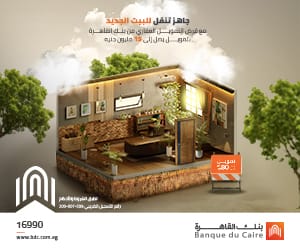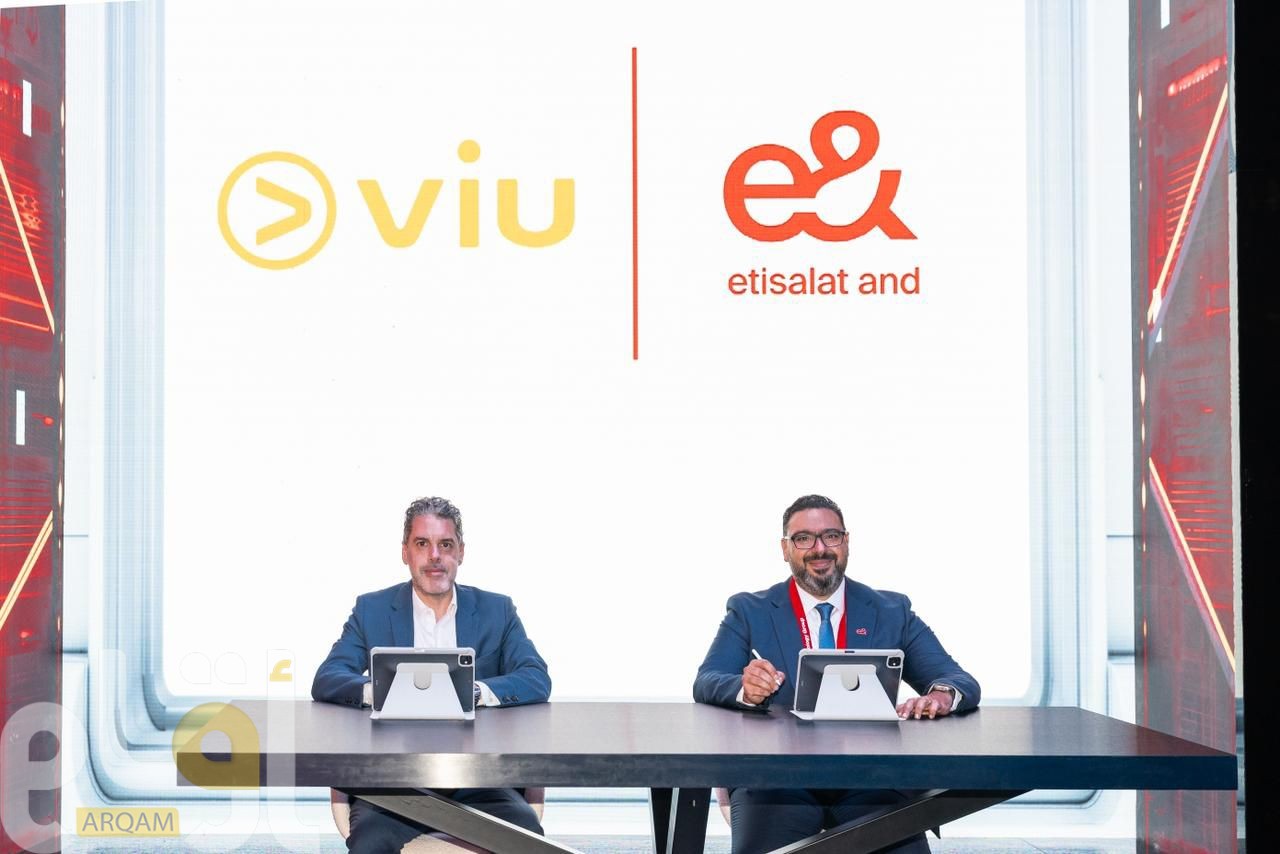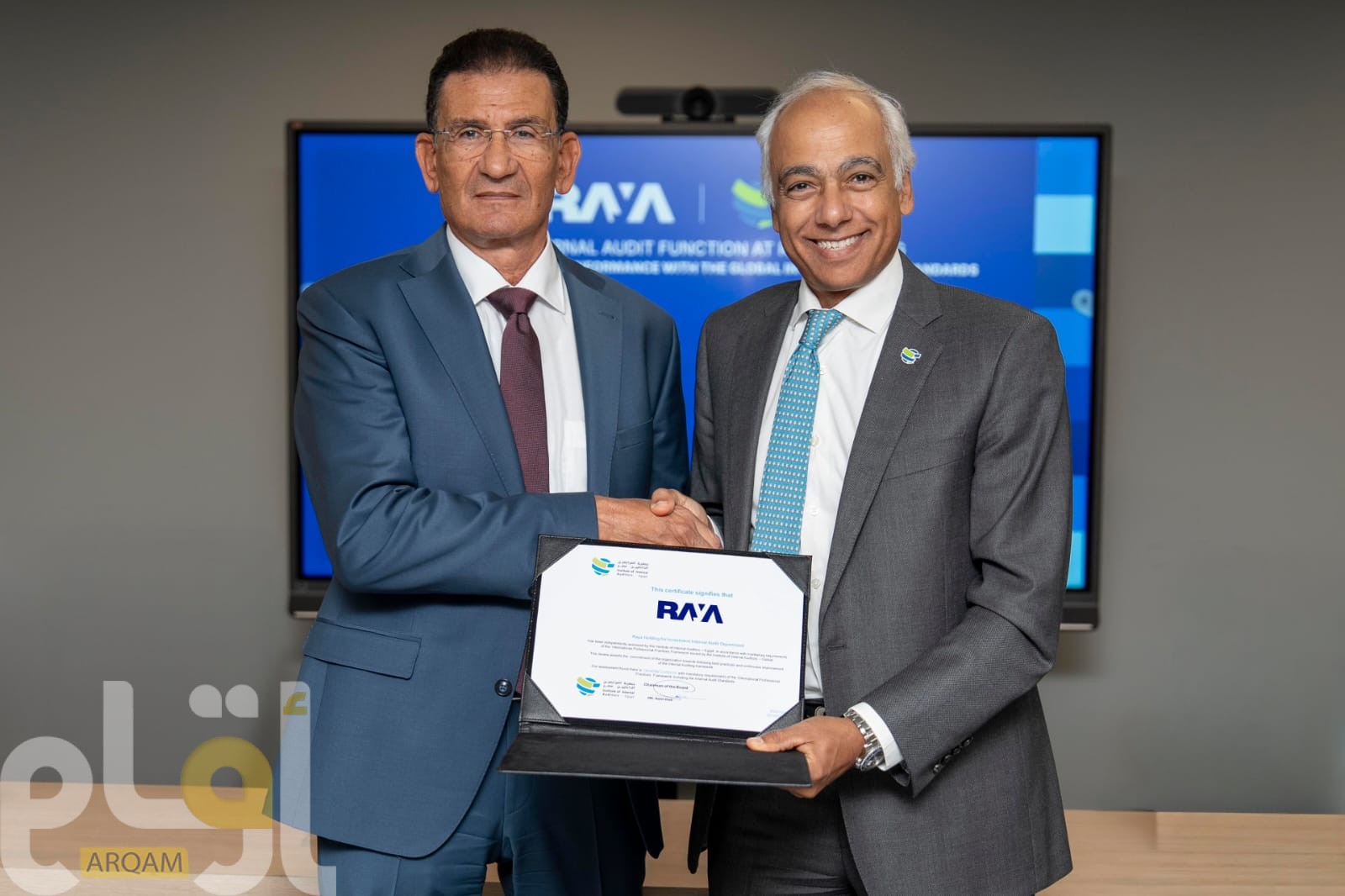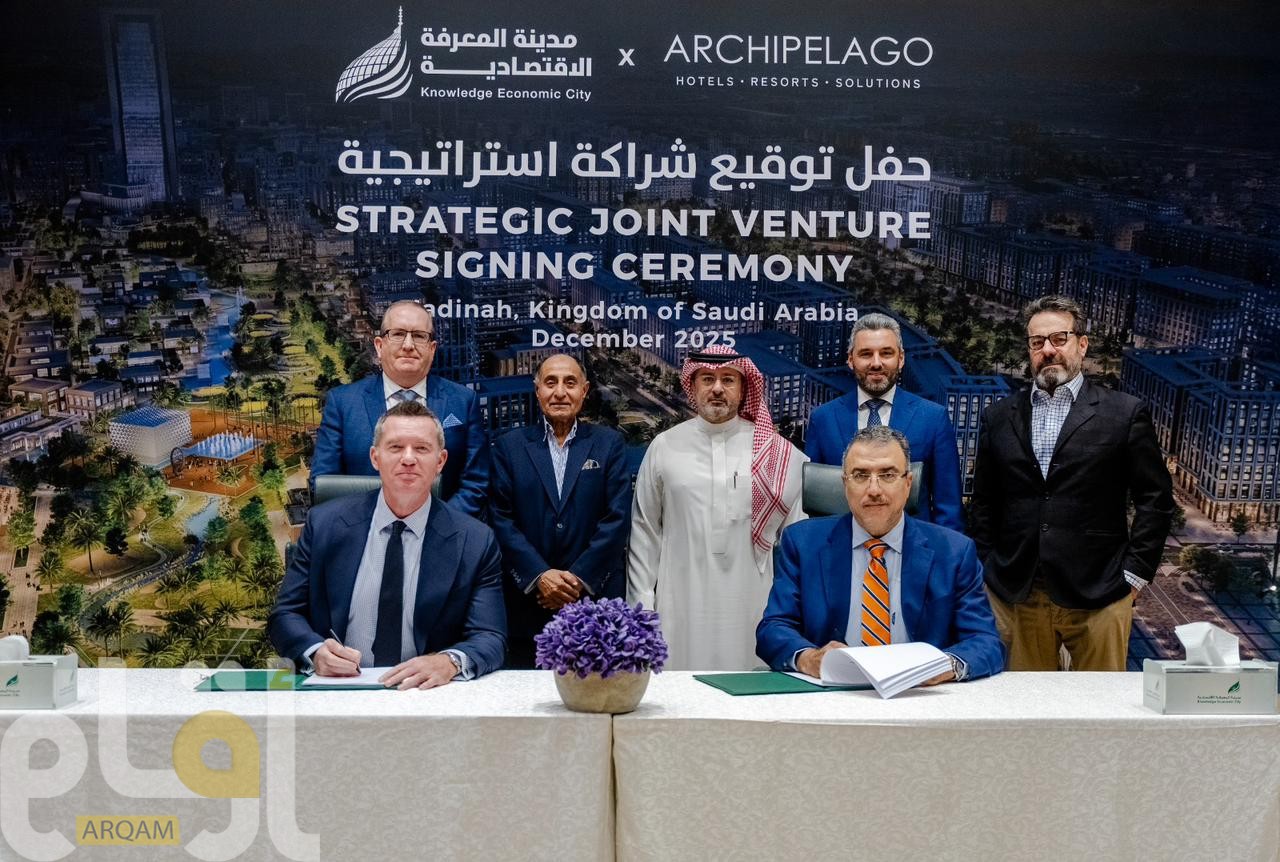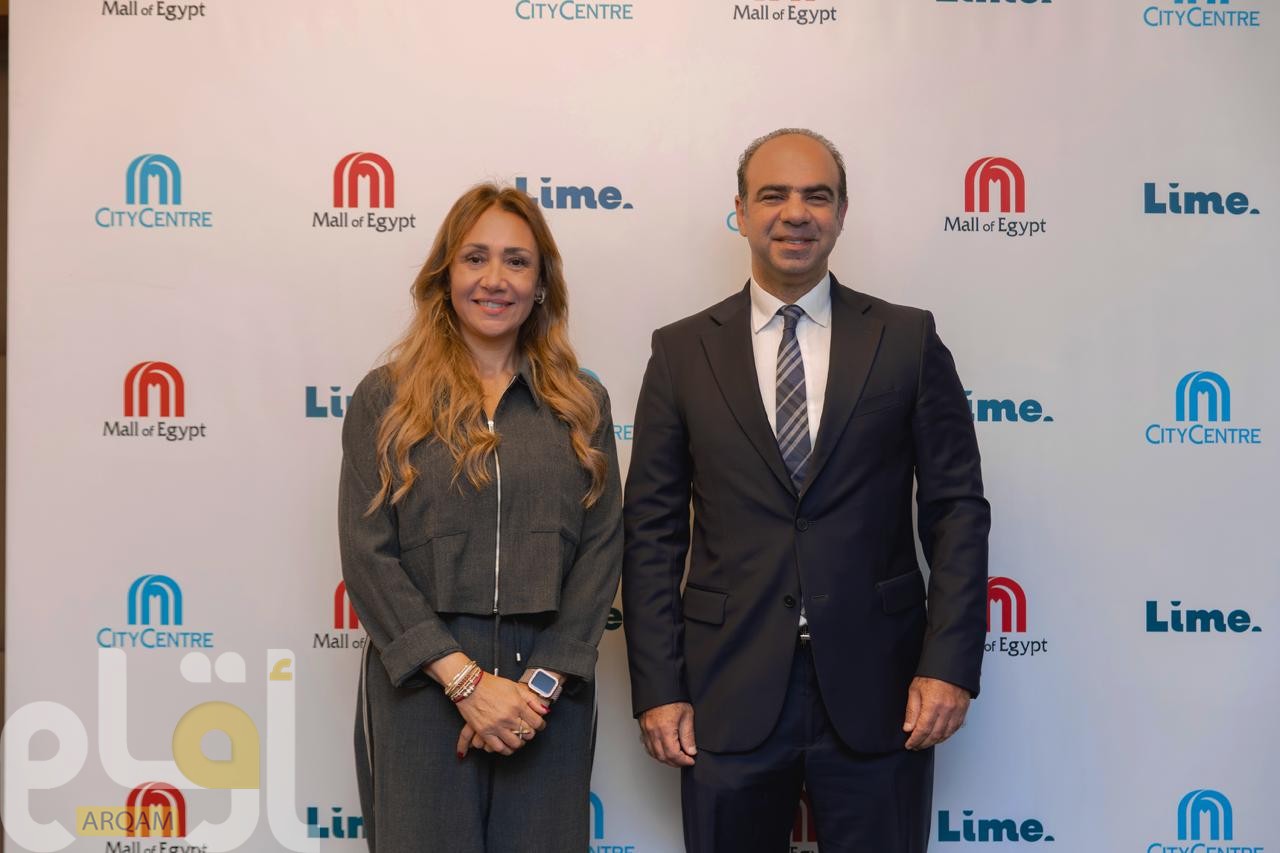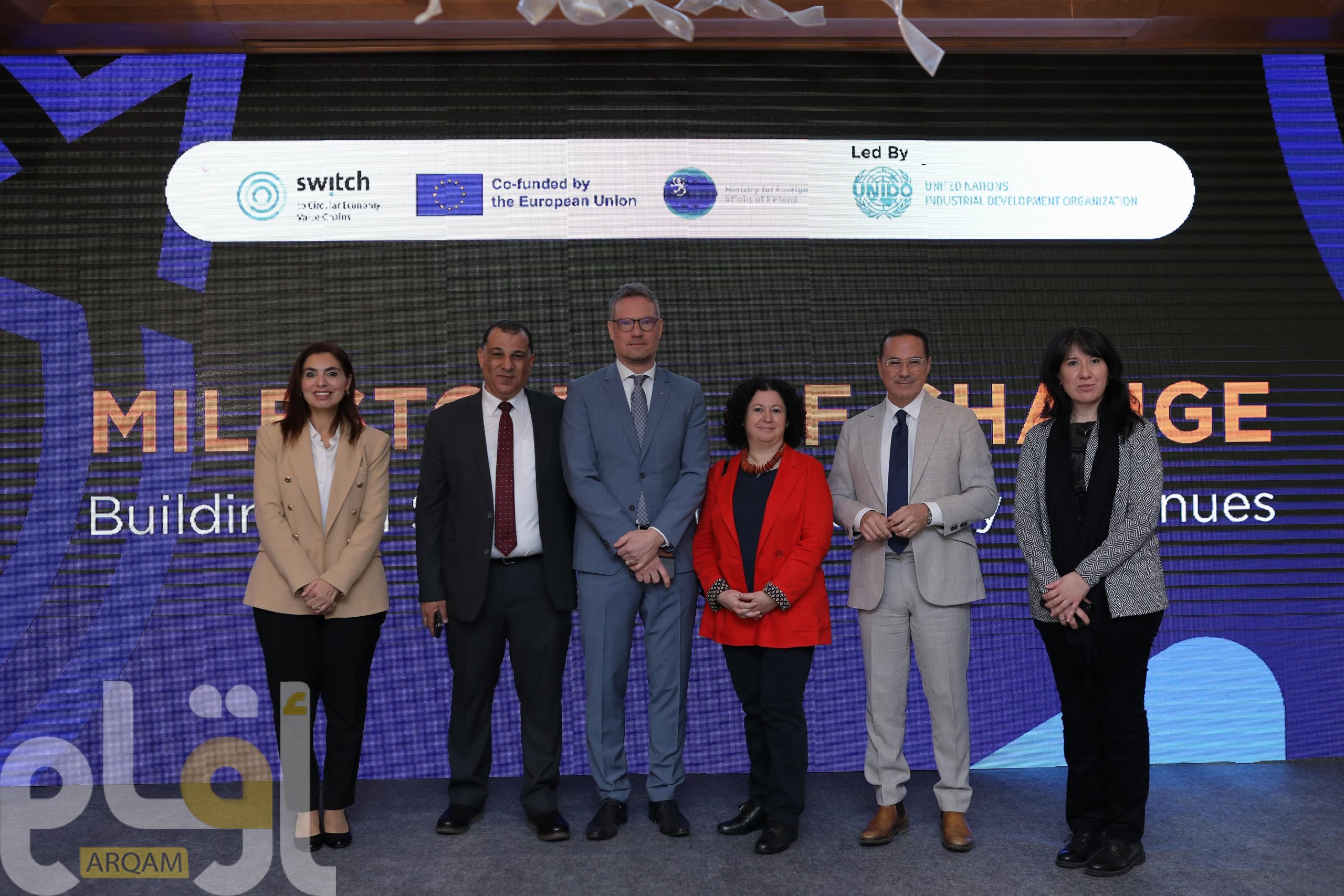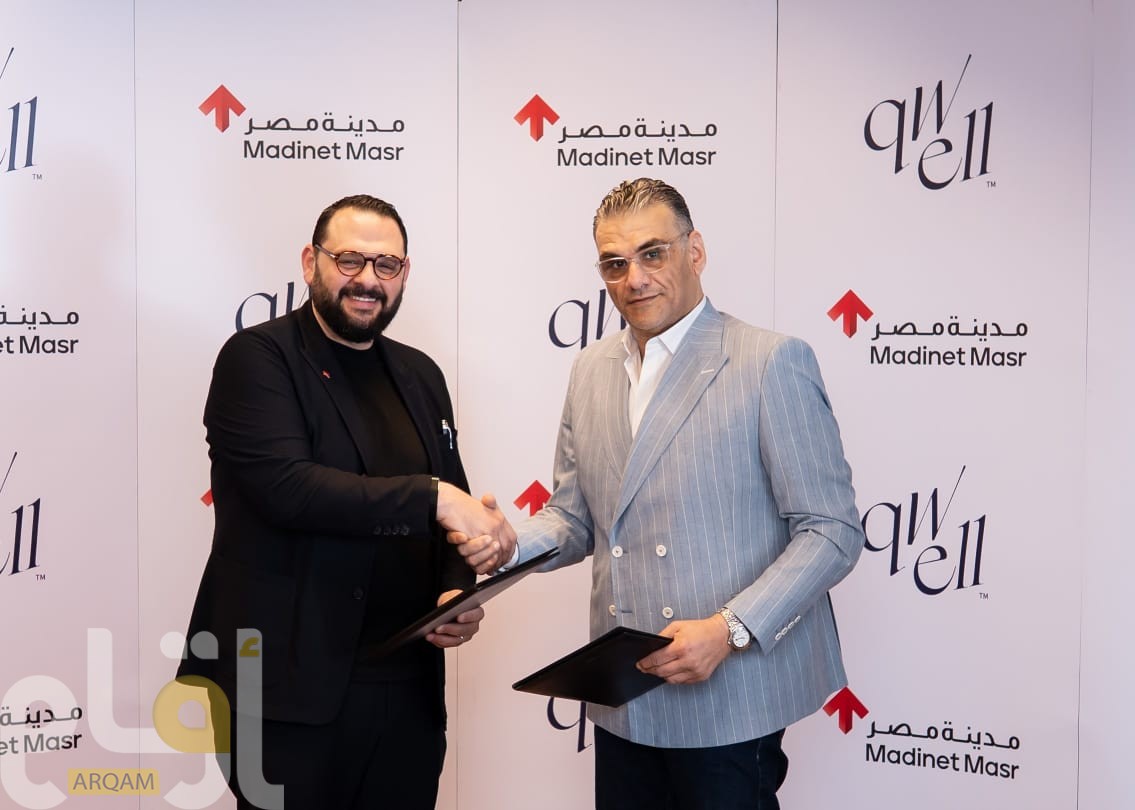Invest-Gate Launched Its 26th Roundtable Entitled “From Heritage to Horizons: Integrating Real Estate & Tourism Investment Opportunities”, the roundtable took place on Wednesday, October 8, 2025, at 9:00 AM, at the Nile Ritz-Carlton Hotel, ‘Alf Leila We Leila Ballroom.
The roundtable brought together senior government officials, leading developers, investors, and experts to discuss the future of integrating real estate and tourism investments in Egypt. It aims to create a constructive dialogue between public and private sector leaders on how to capitalize on Egypt’s unique potentials at the intersection of real estate and tourism. Acting as a catalyst for transformative strategies, the event shed light on one of the nation’s most dynamic engines of sustainable growth.
Discussions spotlighted the growing integration of Egypt’s real estate and tourism sectors as a cornerstone of the country’s future growth model. This integration reflected a strategic shift driven by the Ministry of Tourism and Antiquities, the Ministry of Housing, Utilities, and Urban Communities, and the Ministry of Investment and Foreign Trade, working together under Egypt’s Vision 2030. The approach is redefining how destinations are planned, branded, and financed, while positioning real estate not only as an enabler but also as a key beneficiary of tourism-led development.
The main aim of this discussions was the understanding that the real estate extends far beyond mere construction, it embodies the creation of sustainable lifestyle destinations, iconic cultural landmarks, and global tourism hubs, From the Giza Plateau and Historic Cairo to New Alamein, Sinai, Luxor, and Fayoum, investment in real estate is serving as the backbone of Egypt’s competitiveness, boosting foreign direct investment and reinforcing investor confidence. The roundtable provided a platform to showcase how heritage revitalization and modern hospitality projects can create destinations that seamlessly blend culture, commerce, and community.
Participants also explored how coordinated public–private efforts can accelerate implementation, unlocking new opportunities across heritage zones, resorts, and new urban centers. With a focus on branded residences, lifestyle communities, and hospitality-driven projects, the discussions highlighted how hotels, mixed-use developments, and innovative investment models can act as powerful growth engines. By connecting global capital flows with Egypt’s rich cultural assets, the roundtable aims to reinforce Egypt’s position as a premier gateway for tourism and investment in the region.
The roundtable was divided into two sessions which were moderated by Mr. Moataz Sedky, General Manager of Travco Holidays Egypt and to ensure a cohesive dialogue that bridges policy perspectives with practical industry insights, the discussions began with the first session, entitled “Egypt’s Real Estate & Tourism Roadmap: Policies, Strategies, and Incentives,” which focus on four key dimensions: aligning the integration of Egypt’s real estate and tourism sectors with Vision 2030; promoting public–private collaboration to drive sustainable growth; leveraging heritage, hospitality, and urban development as fundamental economic catalysts; and exploring investment opportunities and governmental incentives aimed to attract both domestic and international investors.
Building upon these strategic foundations, Session 2, titled “Unlocking Growth – The Role of the Private Sector in Real Estate & Tourism Development,” translated these policy directions into actionable insights. It delved into practical approaches to integrate real estate with tourism and hospitality, discuss the emergence of branded residences, lifestyle communities, and destination strategies, and highlight new investment opportunities across heritage zones, resorts, and urban developments. Furthermore, it emphasized the pivotal role of hospitality as a growth engine, particularly through hotels, resorts, and mixed-use projects that contribute to Egypt’s evolving investment landscape.
As well the roundtable witnessed the presence of an elite group of senior officials, executives, and experts in the Egyptian real estate & tourism sectors, including: Dr. Eng. Abdelkhalek Ibrahim, Deputy Minister of Housing, Utilities and Urban Communities; Eng. Khaled Sedeik Chairman of the Board of Urban Development Fund, Dr. Mostafa Mounir, CEO of Tourism Development Authority; Mr. Mohamed Youssef, CEO Advisor of General Authority of Investment and Free Zones (GAFI); and Mr. Hisham El Demery, CEO of E.G.O.T.H.
Also in attendance were Mr. Karim Sultan, CEO of DCUD (Delta Capital for Urban Development); Eng. Mostafa El Sherif, Chief Development Officer of DCUD (Delta Capital for Urban Development); Dr. Bahaa Salem, Group President of Al Salem Holding; Eng. Amr Gazarin, Executive Chairman of Orascom Pyramids; Mr. Alaa Akel, CEO and Chairman of Jaz Hotel Group; Mr. Karim Shafei, Chairman & CEO of Al Ismaelia for Real Estate Investment; Mr. Omar El Tayebi, CEO of TLD – The Land Developers; and Eng. Ahmed Ehab, CEO of Madaar Developments.
Further participants included Dr. Wael El Wardany, Chief Operation Officer of Vantage Developments; Mr. Asser Hamdy, Member of the Core Tourism Committee of AmCham; Mr. Ayman Abbas, Chairman of Intro Holding; Mr. Ahmed Kira, Managing Director of Horof Group for Touristic Projects; Ms. Maha AbdelRazek, CEO of Misr Real Estate Assets Management; Mr. Adham Elbedewy, Executive Vice President of Brassbell Hospitality Group; and Mr. Moataz Amin, Founder and CEO of Prime Hospitality Management Group.
The roundtable was inaugurated by Ms. Safaa Abdel Bary, General Manager and Business Development Director of Invest-Gate, who warmly welcomed real estate developers, tourism and hospitality experts. She emphasized the importance of the event’s timing, coinciding with the anticipated the inauguration of the Grand Egyptian Museum, which underscored the crucial role of real estate-tourism integration in driving economic growth and creating holistic lifestyle and cultural destinations.
The first session started with remarks by Mr. Moataz Sedky, General Manager of Travco Holidays Egypt, who greeted Invest-Gate for organizing this significant event. He praised the importance of topics of discussion in reinforcing the synergy between real estate, tourism, and culture, emphasizing that constructive dialogue between sectors can open new horizons to achieve the objectives of Egypt’s Sustainable Development Vision 2030. He also commended the success of the previous roundtable held in February under the title “Elevate Egypt: Branded Living and Hospitality”, which produced impactful recommendations that have contributed to advance and enhance the competitiveness of the real estate sector.
Dr. Eng. Abdelkhalek Ibrahim, Deputy Minister of Housing, Utilities and Urban Communities, further highlighted that when work began on New Alamein City in 2016, the first projects launched were residential towers, a decision that initially raised questions. He explained that this choice stemmed from the nature of the North Coast, which serves both international and domestic tourism, necessitating a diversity of urban typologies to cater to different visitor segments. In the same context, he pointed out that Aswan stands as a prime example of a world-class city that has successfully preserved its unique urban identity while supporting therapeutic tourism, which plays a fundamental role in supporting tourism development.
He emphasized Egypt’s robust infrastructure as a key enabler for a tourism sector breakthrough, stressing the importance of improving service quality before increasing visitor numbers through capacity building and human resource development. He also pointed out that one of the Ministry’s top priorities in New Alamein is attracting international companies and encouraging foreign investment to secure hard currency, noting that the main challenge is balancing domestic and foreign investment.
Dr. Ibrahim revealed that preparations are underway to host a conference in New Alamein aimed at integrating local and international investments to drive tourism development. He concluded by stressing that the tourist experience lies at the heart of tourism growth and relies on two key pillars: natural and environmental assets on the one hand, and heritage and cultural components on the other. He emphasized the importance of incorporating Egypt’s authentic heritage and traditions into the tourist experience to maximize the country’s unique assets.
He added that effective marketing of real estate products is a crucial factor for the sector’s success, noting that weak promotion remains a real challenge that must be addressed. Effective marketing strategies, he explained, directly contribute to attracting investment and strengthening investor confidence in the Egyptian market.
Dr. Ibrahim also highlighted the importance of simplifying project registration and licensing procedures, describing it as a pivotal step to facilitate foreign investment inflows. He affirmed that investment incentives are a key factor in supporting both the real estate and tourism sectors, and that the government is currently working vigorously to enhance incentive packages, legislation, and administrative frameworks to create a more attractive and efficient investment environment.
He further noted that the national smart cities strategic document was launched just ten days earlier, emphasizing that technological transformation is no longer a luxury but an imperative. Technology, he said, has become an essential component of all sectors, tailored to the specific needs of each. He stressed that accurate data is a cornerstone of sound decision-making, underlining the need to integrate technological tools across the real estate ecosystem to ensure performance efficiency and improve service quality.
For his part, Eng. Khaled Sedeik, Chairman of the Board of Urban Development Fund, stated that the Fund continues its efforts in historic areas, particularly Cairo, with plans to expand in Rashid and Alexandria. He confirmed that the restoration of Historic Cairo aims to revive its original identity and transform it into one of the world’s most beautiful cities.
He explained that the Fund is working closely with the Ministry of Tourism and Antiquities to conduct the necessary studies for the restoration and development of deteriorated areas. In some areas, the Fund has purchased properties amicably from residents at fair market value to preserve their distinctive Islamic character and transform them into hotel units that attract foreign tourists. He noted that Al-Fustat Park alone contains more than 400,000 hotel rooms, positioning it as a global tourism hub.
Eng. Sedeik highlighted Rawdat Al-Sayeda Zainab as a successful model of this approach, where buildings were developed in alignment with historic Islamic architecture. Every element of Historic Cairo, he stressed, must reflect the essence of Egypt’s history. Al-Fustat Park, he added, stands as a clear example of this transformation—from one of the city’s most deteriorated areas into one of the Middle East’s most beautiful destinations.
He also announced one of the Fund’s key achievements: establishing a dedicated historical permit committee that enables investors to obtain necessary licenses within just ten days, representing a major step toward facilitating investment in Historic Cairo.
He concluded by pointing out that the Fund is also working in Halayeb and Shalateen, where traditional Bedouin houses have been constructed in line with local heritage, as part of a comprehensive plan to preserve each city’s architectural identity. The goal, he said, is to complete a large portion of these projects by 2030, with full completion targeted for 2050.
In the same context, Dr. Mostafa Mounir, CEO of Tourism Development Authority, explained that since 2013, the state has been working to prepare Egypt for a new phase of development through building new cities and upgrading slums. Today, he noted, Egypt has entered a phase of enhancement and takeoff, with indicators pointing to the country’s strong emergence on the global stage.
He revealed that the number of tourists reached 16 million, a relatively large figure but still below Egypt’s true tourism potential. Comparing Egypt to countries like the United Arab Emirates, which welcomes about 57 million tourists annually, highlights the vast room for growth.
He added that hotel occupancy rates reached 95% last year, driven by surging demand, diversified visitor segments from across the globe, and an overall rise in tourist quality and spending power.
Dr. Mounir noted that total investments in the tourism sector since the 1990s have reached approximately EGP 5 trillion. He emphasized that 95% of the targeted investments along the Red Sea, according to the new regulatory framework—focus on hospitality projects rather than residential tourism, ensuring sustainable sectoral returns. The Authority aims to add 334,000 hotel rooms in the coming years.
Since its establishment, the Authority has set clear guidelines to balance tourism development with carrying capacity, while respecting the ecological and natural uniqueness of each site. He pointed out that Marsa Alam hosts some of the world’s best coral reef formations.
He concluded by emphasizing that the tourism sector’s performance indicators are highly promising, with unprecedented demand growth and a qualitative improvement in visitor profiles and spending behavior, creating exceptional opportunities for serious investors to achieve exceptional returns.
Mr. Mohamed Youssef, CEO Advisor of General Authority of Investment and Free Zones (GAFI), stated that the state takes great pride in the remarkable achievements accomplished in the tourism and antiquities sector, particularly with the upcoming inauguration of the Grand Egyptian Museum, which represents a new icon for attracting global investment.
He noted that Gulf investments have recently shifted toward the Red Sea region following the boom experienced by the North Coast since 2013, emphasizing that this expansion reflects investors’ confidence in the Egyptian market and the diversity of investment opportunities it offers. He explained that the state provides a wide range of incentives for investors, including technical and procedural support. Notably, projects are considered fully implemented once 80% of construction is completed, in addition to the “Golden License” system that allows investors to obtain all required permits through a single entity to facilitate procedures and accelerate project timelines.
Mr. Youssef highlighted ongoing coordination with landholding authorities, such as the New Urban Communities Authority, to ensure rapid implementation and effective integration between local and foreign investors. He also pointed out that the Authority has launched comprehensive digital platforms to streamline procedures and accelerate operational cycles, as part of the state’s digital transformation strategy and efforts to improve the investment climate.
Mr. Hisham El Demery, CEO of E.G.O.T.H, affirmed that EGOTH is one of the key entities bearing the investment burden in the tourism sector, as it owns hotel assets of exceptional heritage value. He stressed that the exchange of ideas between the tourism and real estate sectors, in collaboration with government entities, has become essential to enhancing integration across sectors.
He added that the company’s core mission is to manage the state’s hotel assets, which include a large number of historic hotels. He explained that EGOTH has entered into several partnerships to develop and revitalize these assets, including the Continental Hotel, which is currently being reconstructed to restore its historical grandeur. He emphasized that government entities involved in these projects place the development of Cairo at the top of their priorities, beyond purely financial returns, while the company is committed to introducing new management models and partnerships to ensure sustainable development and improved performance.
Mr. El Demery also stated that the redevelopment of the Shepherd Hotel is scheduled for completion in the second quarter of 2027. Additionally, EGOTH owns five higher& intermediate institutes of tourism and hospitality located in Luxor, Alexandria, and Ismailia, as well we aspire to establish a new tourism university named “EGOTH University” to attract and train a wider pool of talents interested in the tourism industry.
Mr. Karim Sultan, CEO of DCUD (Delta Capital for Urban Development), explained that explained that Real estate and hospitality must now come together in a unified approach to deliver a product that today’s market truly demands. Modern consumers are no longer seeking just properties or seasonal vacations — they’re pursuing lifestyles and experiences that seamlessly blend leisure with everyday living. This integrated model transcends traditional brick-and-mortar concepts and proves adaptable across all economic scales, redefining how we design, develop, and deliver spaces for modern living.
In the same context, Sultan pointed out that as the population of Egypt’s Delta governorates continues to grow, the region represents a promising area with significant opportunities to increase real estate investment demand.
In response to these needs, the company’s project “Isla” in New Mansoura City, spanning an area of 334 feddans, was developed to meet this growing demand. Isla embodies DCUD’s vision of creating a fully integrated urban community focused on quality of life and modern living standards.
In the same context, Eng. Mostafa El Sherif, Chief Development Officer of DCUD (Delta Capital for Urban Development), highlighted that Egypt’s real estate and tourism investment sector is moving in two main directions.
The first is property export, which requires clear regulatory frameworks that facilitate sales to foreigners and Egyptians abroad, while enhancing Egypt’s position on the global real estate map.
The second direction is tourism investment, which focuses on the development and operation of hotel units. El Sherif highlighted that this type of investment presents a significant challenge, as it is inherently a long-term investment in terms of financial returns. Therefore, it has become essential for the government to play a stronger role by encouraging strategic partnerships under the BOT model (Build, Operate, Transfer), to help ease the financial burden on real estate developers.
as the real estate and tourism sectors together contribute around 30% of Egypt’s GDP. Strengthening cooperation between the public and private sectors is a vital step toward achieving sustainable development and attracting more investment into Egypt’s growing market.
Dr. Bahaa Salem, Group President of Al Salem Holding, emphasized the need to focus on a key tourism segment in the coming period, modern entertainment tourism, drawing inspiration from the successful experience of Emirati cities. He explained that developing this segment in Egypt could generate substantial revenues that would support and stimulate cultural and heritage tourism.
He added that diversifying Egypt’s tourism product has become essential to fully capitalize on the country’s unique assets and position it as an attractive destination for diverse tourist segments worldwide. He stressed that hosting 16 million tourists annually is modest compared to Egypt’s capabilities and historical stature.
Dr. Salem also underlined the importance of establishing a clear and effective international arbitration system to resolve any disputes that may arise with foreign investors. He noted that foreign investment not only brings foreign currency but also transfers expertise and enhances the efficiency of local investors which positively impact the future of tourism and real estate investment in Egypt.
He emphasized that attracting foreign investment into the tourism sector requires flexible legislation, clear guarantees ensuring easy entry and exit from the market, and tax incentives that encourage further investment in this vital sector. Finally, he stressed that promoting Egypt as a destination begins with the visitor’s experience from the moment they arrive at the airport, since the airport forms their first impression of the country. High-quality services, smooth procedures, and warm hospitality are therefore essential elements in shaping a positive image of Egypt.
Eng. Amr Gazarin, Executive Chairman of Orascom Pyramids, stated that entrusting the management of the Giza Plateau to Orascom Pyramids marked a major turning point in enhancing the visitor experience and improving the quality of services offered at the site. He emphasized that this was both a unique and challenging experience, as no entity had previously implemented a project of this scale and integration in such a historic location.
He noted that by 2023, the total number of visitors to the Pyramids reached approximately 2.5 million annually, with 60 to 70 % being Egyptians, while the number of foreign visitors stood at around 700,000 to 800,000. He added that the site had previously suffered from overcrowding, disorder, and unregulated activities, but thanks to the development efforts carried out by the company, the flow of visitors has been organized, and the experience has been transformed into a refined, fully integrated, world-class tourism experience.
Gazarin added that the Egyptian state had adopted a clear vision to change this reality and entrusted Orascom with developing and managing the site in line with the highest international standards for cultural tourism. He stressed that all revenues generated from the Pyramids’ visitation go directly to the Egyptian state, not to Orascom Pyramids.
He underscored that medical care and safety are essential pillars of enhancing tourism destinations, and both were fully considered in the development of the site. Orascom Pyramids, he added, will continue to inject investments over the next 15 years to further enhance the quality of the visitor experience and services, reinforcing the global standing of the Pyramids.
Gazarin also revealed that the Pyramids area is currently witnessing partnerships with major institutions to complete the electric transportation system, alongside initiatives in line with international tourism norms.
He concluded his remarks by stressing that enhancing the visitor experience at the Pyramids and other tourist sites benefits not only the antiquities and tourism sectors but also has a positive impact on real estate developers involved in tourism projects.
Mr. Alaa Akel, CEO and Chairman of Jaz Hotel Group, emphasized that growing demand for tourism is the primary driver for encouraging hotel investment. He noted that hosting only 16 million tourists annually does not reflect Egypt’s vast tourism potential.
He stressed that integration between the real estate and tourism sectors has become essential for achieving sustainable development, highlighting the real estate boom in the Almaza area, which was accompanied by a significant rise in hotel projects. This development, he explained, has played a major role in attracting foreign investors and boosting tourism in the area.
Akel looked forward to the enforcement of Law No. 8 on tourism licensing, pointing out that some legislative and procedural hurdles continue to impede tourism development. Implementing this law, he added, would mark a qualitative leap in the tourism investment environment.
He also underscored the need to impose strict regulations to protect the marine environment amid increasing violations by some boats, stressing that this issue requires direct intervention from the Ministry of Environment, as marine resources are a valuable national asset.
He pointed out that protecting marine life and regulating related tourism activities would enhance the tourist experience, boost the sector’s efficiency, and increase economic returns. He estimated that implementing these regulations could raise tourism revenues to around USD 30 billion annually, noting that increasing the number of hotel rooms alone is insufficient since it is tied to a fixed time frame — hence the need to improve the overall tourism experience.
Mr. Karim Shafei, Chairman & CEO of Al Ismaelia for Real Estate Investment, stated that Downtown Cairo is one of the most significant areas for Egyptians as it reflects Egypt’s modern identity. He explained that when tourists visit Cairo, they seek a unique experience that embodies the city’s spirit and daily life, as the area offers an authentic opportunity to explore Egyptian society in all its diversity and culture.
He noted that investing in Downtown and historic areas represents one of the fastest and most cost-effective ways to achieve tourism development compared to mega-projects, as it opens the door for small investors as well as large companies, while also increasing the profitability of local commercial activities.
He concluded by affirming that the development of Downtown Cairo will yield significant economic and tourism returns, revive architectural heritage, and enhance the city’s attractiveness as a global tourism destination.
Continuing the discussion, Mr. Omar El Tayebi, CEO of TLD – The Land Developers, stressed that integration between the tourism and real estate sectors is a cornerstone for achieving Egypt Vision 2030, which aims to welcome 30 million tourists annually. He noted that this integration could generate revenues of up to $30 billion, adding that the success of this model depends on the quality of the tourist experience and spending levels. This requires developers to create projects that include attractions and services capable of drawing international visitors, as well as increasing hotel room capacity.
He emphasized the importance of developers possessing dual expertise in both real estate and tourism development to ensure balance and integration in new projects, given the significant differences between the two industries.
El Tayebi revealed that the company plans to launch a mixed-use project next year that will include the hospitality components. He also highlighted the need for further incentives and facilities from the Ministry of Housing to support developer participation in tourism projects and encourage more investment in this promising sector. He added that expanding the capacity of Egyptian airports is essential to meet the target of doubling the number of hotel rooms in Egypt.
On another note, Eng. Ahmed Ehab, CEO of Madaar Developments, emphasized that the infrastructure development in the Northwest Coast during 2023 played a pivotal role in driving tangible growth in the region. This progress culminated in the Ras El Hekma deal, which marked a strategic turning point in attracting major investments.
He explained that the continued expansion of infrastructure projects, including the construction of airports and the development of road networks, will further enhance the region’s attractiveness to both local and international investors in the coming period.
Ehab added: “That’s why at Madaar Developments, we were keen to offer a distinctive real estate and hospitality product through our project Azha Ras El Hekma, located at kilometer 214 on the Alexandria–Marsa Matrouh road. The project spans 250 feddans with investments exceeding EGP 20 billion. We utilized the site’s naturally tiered landscape, ensuring all units enjoy unique sea views, while water and green areas make up 86% of the total land area, including 45 feddans of artificial lakes, offering a truly integrated and unique residential and touristic experience.
He further explained that the presence of Minor Hotels, a global hospitality group, in the Egyptian market is a clear indicator of the success of Egypt’s investment climate. The partnership with the company includes the development of a hotel within Azha Ras El Hekma, two hotels in Azha Ain Sokhna, and one hotel in Kenz New Zayed project.
He noted that Minor Hotels owns over 600 hotels worldwide and plans to open more than 50 new hotels in Egypt in the coming period.
He concluded by affirming Egypt’s potential to add up to 300,000 new hotel rooms, especially as the government continues to offer incentives and facilitate procedures that encourage investors to expand in major tourism projects.
In addition, Dr. Wael El Wardany, Chief Operation Officer of Vantage Developments, stated that increasing the number of tourists represents a key pillar in achieving Egypt’s vision of attracting 30 million visitors annually. He emphasized that realizing this target requires close cooperation between the public and private sectors to ensure the sustainability of tourism development.
He underscored the importance of private sector participation in implementing tourism projects in coordination with the state, thereby expanding hotel capacity and providing integrated facilities that meet visitors’ needs while offering high-quality services at competitive prices. This, he noted, would enhance Egypt’s competitiveness in both regional and global tourism markets.
Dr. El Wardany pointed out that one of the main challenges currently facing real estate developers lies in the volatility of raw material prices, which directly impacts construction costs and project feasibility. He also highlighted the need to reassess financing mechanisms and offer further incentives to support developers in carrying out their projects.
He concluded by affirming that achieving full integration between the real estate, tourism, and financial sectors is the most effective path to enabling developers to lead the development process and drive growth in Egypt’s real estate and tourism industries.
Mr. Asser Hamdy, Member of the Core Tourism Committee of AmCham, stressed that investment in the real estate and tourism sectors are two sides of the same coin. He explained that comprehensive development cannot be achieved without an integrated tourism sector that supports urban development and gives it a distinctive identity. Cities today, he noted, are defined by their architecture, modern landmarks, airports, and major tourism projects—elements that reflect the economic impact of urban development in creating jobs and boosting economic activity.
He added that hotels and tourism facilities play a central role in enhancing the appeal and value of real estate investments, noting that many real estate projects in recent years began as residential developments and gradually evolved into fully integrated tourism destinations. One of the key challenges, he explained, is that current legislation has not yet kept pace with the speed of this transformation. He emphasized the need to update regulatory frameworks to facilitate the conversion of real estate zones into tourism development destinations that support the state’s sustainable development vision.
Mr. Ayman Abbas, Chairman of Intro Holding, affirmed that Egypt has a clear objective in tourism development: to welcome and embrace international visitors. He noted that the country possesses all the natural assets needed to become a top global destination, which is ranging from its temperate climate and stunning coastlines to its unique historical treasures and the Nile River, one of the world’s most iconic tourist attractions.
He stressed the importance of adopting a unified national approach supported by all segments of society, alongside raising public awareness of the strategic significance of tourism as a key source of national income and economic growth.
He highlighted that real estate and tourism are inherently complementary, citing successful international models such as Morocco, where investors receive incentives of up to 50% of construction costs upon project completion within a set timeframe. Implementing similar policies in Egypt, he said, would significantly boost investment in both tourism and urban development.
Mr. Abbas also called for expanding tourism investment beyond coastal regions to other governorates, noting that historic cities such as Luxor possess unique assets capable of attracting major hospitality and leisure investments. This diversification, he explained, would enhance Egypt’s tourism offering and ensure a more balanced distribution of development returns.
He concluded by stressing the importance of ensuring that hotels remain operational year-round not just during peak seasons, to sustain tourism activity and maximize the return on investments and infrastructure.
Mr. Ahmed Kira, Managing Director of Horof Group for Touristic Projects, explained that participating in this conference aligns with supporting and developing the meetings, incentives, conferences, and exhibitions (MICE) segment, which plays a key role in advancing tourism and attracting new visitor segments.
He emphasized that Egypt’s North Coast represents the country’s real future, describing it as a promising area with immense potential. He noted that the current hotel capacity does not exceed 4,000 rooms, whereas the target should be around 50,000 rooms, an ambitious goal that requires legislative reform and binding commitments for rapid implementation from real estate developers.
Mr. Kira added that Egypt is a country with high touristic potentials, qualifying it to become one of the leading touristic destinations globally.
In her remarks, Ms. Maha AbdelRazek, CEO of Misr Real Estate Assets Management, highlighted the role of women in supporting tourism development. She emphasized the importance of diversifying tourism offerings beyond leisure tourism, pointing to shopping tourism as one of the most promising segments. She explained that many Turkish and international companies manufacture their products in Egypt, creating opportunities to organize events such as “Shopping Week” to attract visitors and stimulate both tourism and trade.
She noted that hotel occupancy rates remain modest around 60% in Alexandria and 64% in Cairo which necessitates comprehensive strategies to boost year-round demand. She also underlined the untapped potential of medical tourism and stressed the importance of promoting domestic tourism and raising awareness of its economic and social value.
Ms. AbdelRazek concluded by affirming that women play a pivotal role in advancing service and tourism sectors, given their holistic vision and ability to manage the details that define the quality of the visitor experience.
Mr. Adham Elbedewy, Executive Vice President of Brassbell Hospitality Group, explained that the company operates under three main pillars which are “owner, operator, and supplier”, This approach ensures full integration within the business model and achieves the highest operational and investment efficiency.
He added that the Brassbell currently manages a portfolio of more than 880 hotel units across Cairo, Alexandria, the North Coast, Hurghada, and other touristic destinations. By the end of the year, the company aims to reach about 1,200 hotel units as part of a comprehensive expansion plan. Upcoming, it also targets managing over 2,500 hotel units nationwide.
He stated that the company owns and operates eight hotels, many of them were developed directly by the company. These include small hotels in Downtown Cairo, with nightly rates ranging between $50 and $150, a category that had previously been underutilized.
He pointed out that Downtown Cairo attracts tourists who are interested in heritage and culture visitors who tend to spend more than the average tourist. The growing interest from both local and foreign investors has helped to attract new investments to the area and revive Cairo’s historical and cultural character.
He also announced the launch of the first tranche of a real estate fund focused on tourism investment, valued at EGP 270 million, in the upcoming days. He explained that this fund allows investors to purchase investment certificates in existing projects, with the option to resell them later, as they are backed by real assets.
The roundtable concluded with a speech by Mr. Moataz Amin, Founder and CEO of Prime Hospitality Management Group, who emphasized that branded residences represent the next major driver of real estate developers’ strategies, both in directing investments toward the tourism sector as well as utilizing them in tourism-oriented consumption projects. He explained that these units offer operational flexibility and deliver sustainable investment returns.
He pointed out that the government is currently working on formalizing the holiday homes system within a clear legislative and regulatory framework. However, determining the scale of demand and expected returns from this type of investment largely depends on the project’s location and the nature of the surrounding tourist area.
Mr. Amin also noted that, so far, there is no clearly defined licensing framework for companies managing branded residences. He stressed the importance of simplifying hotel housing licensing procedures to attract more investment and better regulate the market.
He explained that a unit designated as a branded residence must be fully finished and furnished in line with international hospitality standards. He further called for a gradual shift toward investing in small and medium-sized projects, allowing residential, administrative, or commercial buildings to be quickly converted into hospitality elements. This approach, he argued, would meet the growing demand for such units while boosting the sector’s accommodation capacity.
He added that many investors possess strong portfolios that enable them to diversify investments across multiple areas which is facilitating their transformation into branded residences that support tourism and maximize the value of existing real estate assets.
The roundtable was officially sponsored by (DCUD) Delta Capital for Urban Development, while the Platinum Sponsor was Al Salem Holding. Gold Sponsors TLD- The Land Developers, and Madaar Developments, while Silver Sponsors were Vantage Developments, Mint Real Estate Assets, Misr Real Estate Assets Management, and Brassbell Hospitality Group.
Media Partners were Aleqaria, Al-Borsa newspaper, Daily News Egypt, Al-Gedaan Real Estate, Aqarmap, Osoul Misr Magazine, BloomGate, Property Plus, Aqargate, and Iskan Misr.


